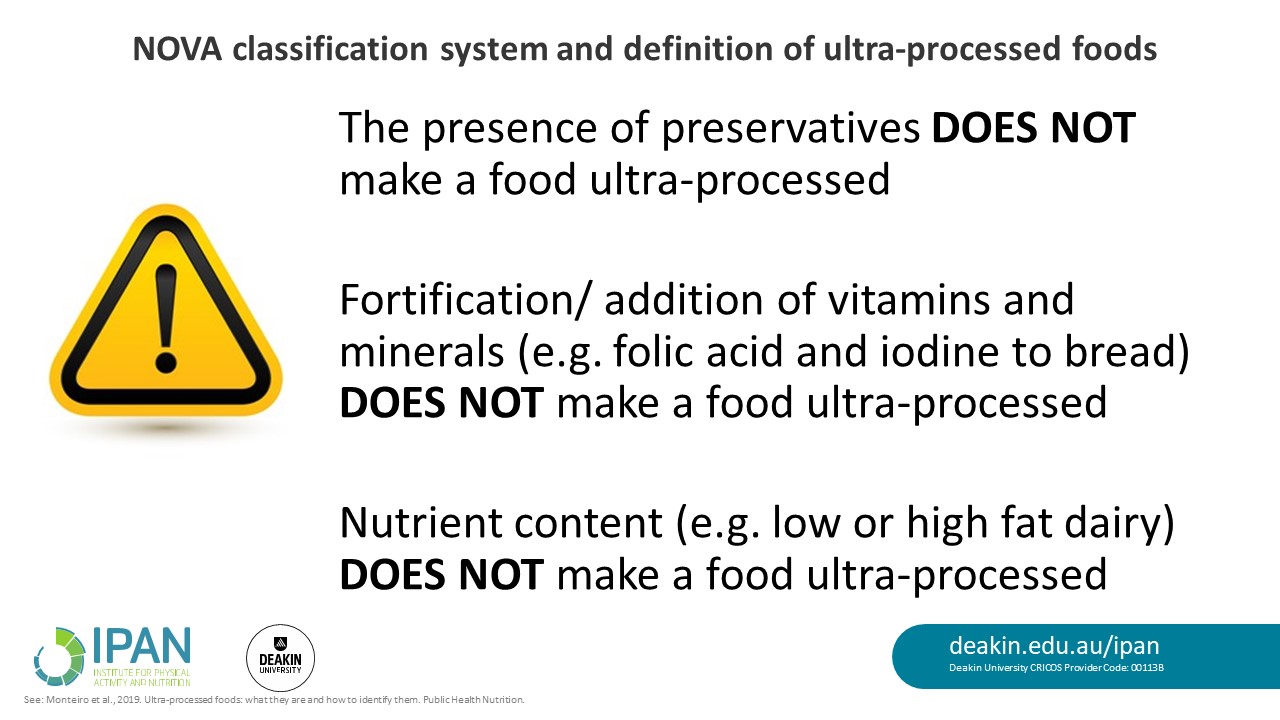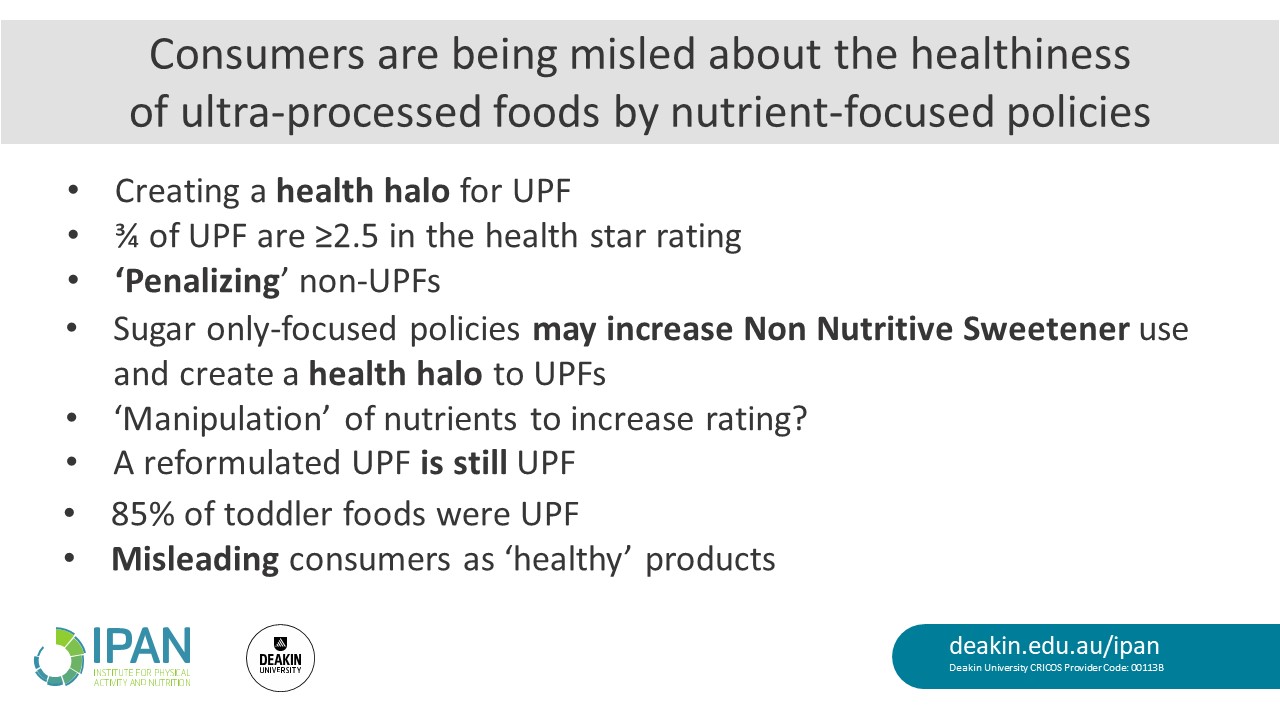Ultra-processed foods – an update by Dr Priscila Machado, PhD, Research Fellow
 Anthea Talliopoulos, APD
Anthea Talliopoulos, APD
In Australia, ultra-processed foods have become mainstream, with many children and adults frequently consuming these products. Not only are ultra-processed foods harmful for our health when consumed excessively, increasing our risk of obesity, cardiovascular disease, diabetes, depression, gut dysbiosis, cancer, and associated mortality, but they are also harmful for our environment.
Research Fellow Dr Priscila Machado explains that while our food pyramids have been used to separate food into groups, this is often overly simplistic and does not consider the degree of food processing involved, reducing foods to a sum of isolated nutrients existing in foods. Over recent years, however, there has been increasing research into food processing, with the emergence of the NOVA Food Processing classification system which uses the lens of a more holistic paradigm to understand the role of food processing. Rather than foods being grouped according to the nutrients they contain (such as proteins, fats or carbohydrates), it recognises that the potential health effects of foods and diets involve the food matrix and other physical, biological and chemical properties of foods that are fundamentally altered by processing, and especially by ultra-processing (such as processed meats or breads). This information can be used to enable consumers to make more informed food choices.
In addressing the health implications of ultra-processed foods, our dietary guidelines, public health and food industry policies should be reviewed to support people to overcome potential obstacles for less-processed food consumption and traditional diets. This will require ongoing public health action and advocation by health professionals.
Summary:
- The adverse health implications of ultra-processed foods are becoming increasingly apparent in the literature, being associated with obesity, cardiovascular disease, diabetes, depression, gut dysbiosis, cancer, and associated mortality, as well as being harmful for the environment.
- The NOVA Food Processing classification system enables food to be classified according to the level of processing, which can be used to enable consumers to make more informed food choices. In this system, foods are categorised into group 1, 2, 3 or 4, depending on the degree of chemical processing, with group 1 food being minimally processed or unprocessed foods (such as wholefoods like eggs, unprocessed meats and milk), and group 4 being ultra-processed foods (such as processed meats, breads and pastries), with the amount of food packaging increasing in ultra-processed foods.
- In addressing the adverse health implications of ultra-processed foods, public health action is warranted, as well as a review of current policies, procedures and a tightening on marketing policies to enable consumers to make more informed food choices.
Dr Priscila Machado, PhD, Research Fellow, Institute for Physical Activity and Nutrition, Deakin University
Priscila is an Alfred Deakin Postdoctoral Research Fellow at the Institute for Physical Activity and Nutrition, Deakin University, Australia. She holds a Masters and a PhD in Public Health Nutrition from the University of Sao Paulo, Brazil, where the concept of ultra-processing was developed. Her research focuses on understanding the role of ultra-processed foods in human and planetary health. Recent work includes developing a sustainable healthy diet index based on the level of food processing.
To register for the presentation and associated documents including the assessment quiz click here

